- Administrator
- Albums and Singles

Sound In Silence is proud to welcome back Sweeney, presenting his new album Misery Peaks.
For about twenty years Jason Sweeney, now based on Kaurna Country in South Australia, has been composing and recording either solo, under the alias of Panoptique Electrical, Other People’s Children and Simpático, or with friends in various musical projects like Pretty Boy Crossover, Sweet William, School of Two, Luxury Gap, Par Avion, Great Panoptique Winter, Mist & Sea, Winter Witches, GIRL and many others. He has also been directing and creating interactive works for the internet, experimental films, projects for galleries and theatre spaces and has collaborated with some of Australia’s leading performing arts companies and organizations.
Misery Peaks, Sweeney’s third full-length album, consists of eight highly emotional songs with a total duration of something more than 38 minutes. Constructed around Sweeney’s fragile vocals, layers of string section drones, slightly processed piano, cinematic cello samples performed and recorded by his frequent collaborators Zoë Barry and Jed Palmer respectively, minimal beats, subtle electronic glitches, other odd noises and field recordings, Misery Peaks perfectly blends melancholic songwriting, modern classical, electronic textures and ambient soundscapes.
Carefully mastered by George Mastrokostas (aka Absent Without Leave), Misery Peaks is a wonderful personal album about relationships, intimacy, brokenness and romanticism, highly recommended for devotees of Scott Walker, David Sylvian, Anohni and the quieter moments of Depeche Mode.
More information can be found here.
Read More
- Administrator
- Albums and Singles

Sound In Silence is happy to announce the return of The Green Kingdom, presenting his new album Solaria.
The Green Kingdom is the solo project of Michael Cottone, a sound artist and graphic designer based in Michigan, USA. Interested in creating compositions which blur the lines between soundscape and structure while keeping a sharp focus on melody, his pieces are crafted using a variety of instruments, electronic sources, sampled textures and field recordings.
Since 2006 he has released several wonderful albums and EPs on labels such as Lost Tribe Sound, Dronarivm, Home Assembly Music, Hidden Vibes, Past Inside The Present, Rusted Tone Recordings, Nomadic Kids Republic, Own Records and many others. He has also put out two releases, an album and an EP, with his dub techno/ambient side-project Dustcraft and a self-released single with his solo acoustic guitar side-project Pinesong.
Solaria is an evocative album of eight new tracks with a total duration of about 40 minutes. Blurring the line between soundscape and structure, Cottone skillfully utilizes a variety of electronic and acoustic elements, including textures of electric guitar swells, soothing synth pads, warm drones, shimmering melodies, twinkling chimes, ringing acoustic guitar arpeggios and minimal lulling beats, to create one of his most charming works to date.
Expertly mastered by George Mastrokostas (aka Absent Without Leave), Solaria is a beautiful album of floating ambience, gentle rhythms and contemplative atmospheres which appeals to all fans of artists such as Helios, Federico Durand, July Skies and Epic45.
More information can be found here.
Read More
- Creaig Dunton
- Albums and Singles
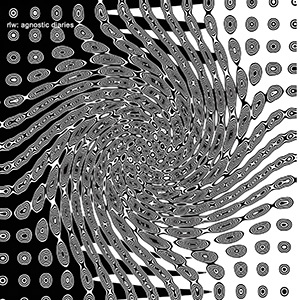 Consisting of raw materials from 2005, but heavily reworked and processed between 2016 and 2017, Ralf Wehowsky's latest work is actually a compilation of unfinished and aborted projects. Mostly centered around voice recordings, the six pieces on Agnostic Diaries represent collaborations that, for one reason or another, fell through or never saw the light of day. That is anything but apparent though; since there is a clear consistency from start to finish, and one that is in line with the style of Wehowsky's recent works.
Consisting of raw materials from 2005, but heavily reworked and processed between 2016 and 2017, Ralf Wehowsky's latest work is actually a compilation of unfinished and aborted projects. Mostly centered around voice recordings, the six pieces on Agnostic Diaries represent collaborations that, for one reason or another, fell through or never saw the light of day. That is anything but apparent though; since there is a clear consistency from start to finish, and one that is in line with the style of Wehowsky's recent works.
Black Rose Recordings/Dirter Promotions
The sounds of the human voice are one specific thing that links these pieces together, from the fragmented communications on "Le Ballet" (from George Antheil's Ballet Mecanique) to the processed speeches and deep breathing of "For Gerald," to the less treated dialogues of "Caute!" As intended though, Wehowsky uses these voices, processed or otherwise, as he would any other sound source, so they would not constitute vocal pieces per se.
Another RLW trademark throughout many of these is a use of digital sounds processed into low fidelity bitrates. On the aforementioned "Le Ballet" they form the framework that computer blips and shrill, painful electronics are then grafted on to. There is a ghostly sense to the piece overall and, with a mix of swells, jump cuts, and heavy bass frequencies; the whole piece is rather strange and disorienting. "July 2006" feels like a continuation, albeit one with erratic reverbs, cricket-like chirps and what could even be a Geiger counter.
On "For Gerald," what sounds like collaborator Anla Courtis's contribution of squalling electric guitar shines through clearly alongside spacy electronics and what almost resembles a spate of kick drums, or perhaps someone transitioning from walking into running on a hard surface. Either way, it makes for the piece with the most traditionally musical sounding elements, but chopped up and processed into something else entirely. Concluding piece "Monotype #6" is another notable standout with its multi-layered fragmented voice (courtesy of Dylan Nyoukis) and stabbing horror strings, creating a complex, yet menacing end to the record.
Even though these pieces were all created for different purposes, Wehowsky did an excellent job in the reworking process to bring them all together into a consistent album. It is not that far removed from its predecessor on Black Rose/Dirter, Flurry of Delusion, but the emphasis on vocal elements makes it stand out on its own. Like any RLW album, Agnostic Diaries is disorienting, confusing, and at times painful, but never fails to fascinate.
Read More
- Anthony D'Amico
- Albums and Singles
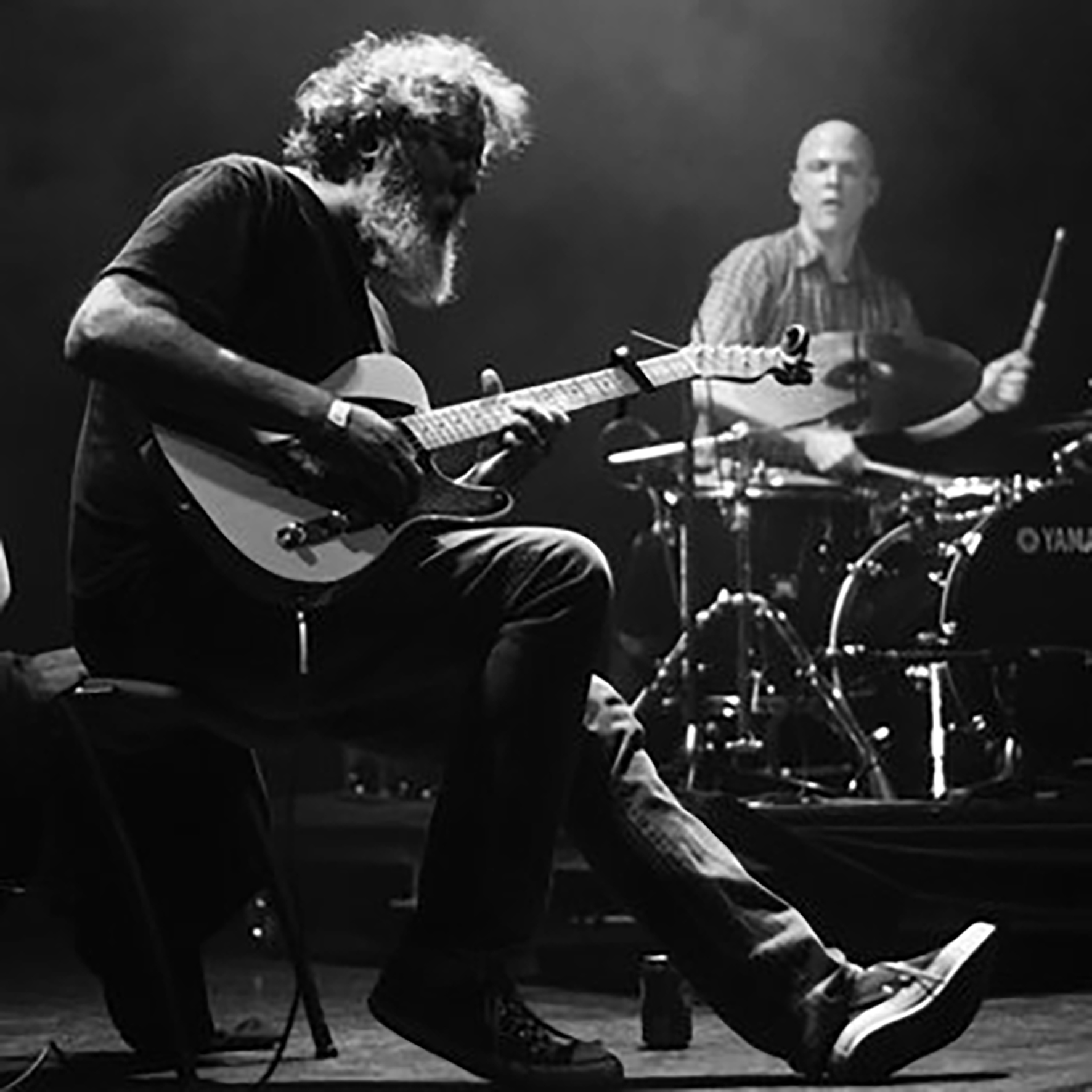 In theory, any album recorded by the duo of Chris Corsano and Bill Orcutt should be an instant Album of the Year candidate for me, as the pair are easily among my favorite musicians on the planet. However, 2018’s explosive Brace Up! was not quite my thing, calling to mind Orcutt's earlier and viscerally cacophonous Harry Pussy days. I have no doubt that seeing the duo live during that period would have either torn off my head or melted my face, but that album is not the one I reach for when I have an Orcutt craving. Happily, the opposite is true of this latest convergence of the two fiery improv iconoclasts, as Made Out of Sound resembles one of Orcutt's more recent solo albums organically intertwined with some oft-incendiary free drumming. Despite being generally more melodic and less feral than its predecessor, however, the more nuanced Made Out of Sound is nevertheless a radical and intense recording in its own right. It is truly rare to encounter such seemingly effortless and fluid chemistry between two artists with such instantly recognizable and attention-grabbing aesthetics.
In theory, any album recorded by the duo of Chris Corsano and Bill Orcutt should be an instant Album of the Year candidate for me, as the pair are easily among my favorite musicians on the planet. However, 2018’s explosive Brace Up! was not quite my thing, calling to mind Orcutt's earlier and viscerally cacophonous Harry Pussy days. I have no doubt that seeing the duo live during that period would have either torn off my head or melted my face, but that album is not the one I reach for when I have an Orcutt craving. Happily, the opposite is true of this latest convergence of the two fiery improv iconoclasts, as Made Out of Sound resembles one of Orcutt's more recent solo albums organically intertwined with some oft-incendiary free drumming. Despite being generally more melodic and less feral than its predecessor, however, the more nuanced Made Out of Sound is nevertheless a radical and intense recording in its own right. It is truly rare to encounter such seemingly effortless and fluid chemistry between two artists with such instantly recognizable and attention-grabbing aesthetics.
In wrestling with how to best describe Orcutt's playing on this album, my mind predictably kept returning to the phrase Ira Gitler once famously used to describe John Coltrane's aesthetic: "sheets of sound." In Orcutt's case, however, most of Made Out of Sound feels more like sheets of rain falling on a pond: individual drops constantly and rapidly changing the rippling patterns with each small splash. There is also the potential to be startled by a surprise duck. Translating that into more musical terms, the drops are the ringing open strings, the rippling pond is a mass of constantly evolving harmonies and dynamics, and the surprise duck is the snarling, snapping, and scrabbling flurries of notes that Orcutt sometimes unleashes. Notably, that metaphorical pond scene also includes a dangerously intense wave machine in the form of Corsano's whirlwind free-form drumming.
Given their collaborative history, it is hardly surprising that the duo's interplay feels so natural at this stage, yet the best moments of the album feel so uncannily instinctive and spontaneous that the wash of sound almost seems like a churning, heaving living organism. Remarkably, the duo recorded their parts separately from different coasts, which makes the “live” intensity and fluid interplay feel almost miraculous, but also allowed Orcutt more space for nuance than usual (as well as the ability to overdub a second guitar track). If I was forced to choose a favorite piece, I would probably pick one of the more melodic ones like the wistful "Some Tennessee Jar" or clattering, tumbling pathos of "Man Carrying Thing," but the whole damn album feels akin to witnessing a pair of magicians flawlessly perform one dazzling trick after another (the trick in each case being "distilling primal/art-damaged blues into a pure, expressionist catharsis that transcends conventional scales, chords, melodies, rhythms, and genre tropes"). Every single one of these pieces feels like a vivid eruption of pure, direct emotion that leaves compelling music in its wake. This is a canonical Bill Orcutt album.
Samples can be found here.
Read More
- Administrator
- Albums and Singles
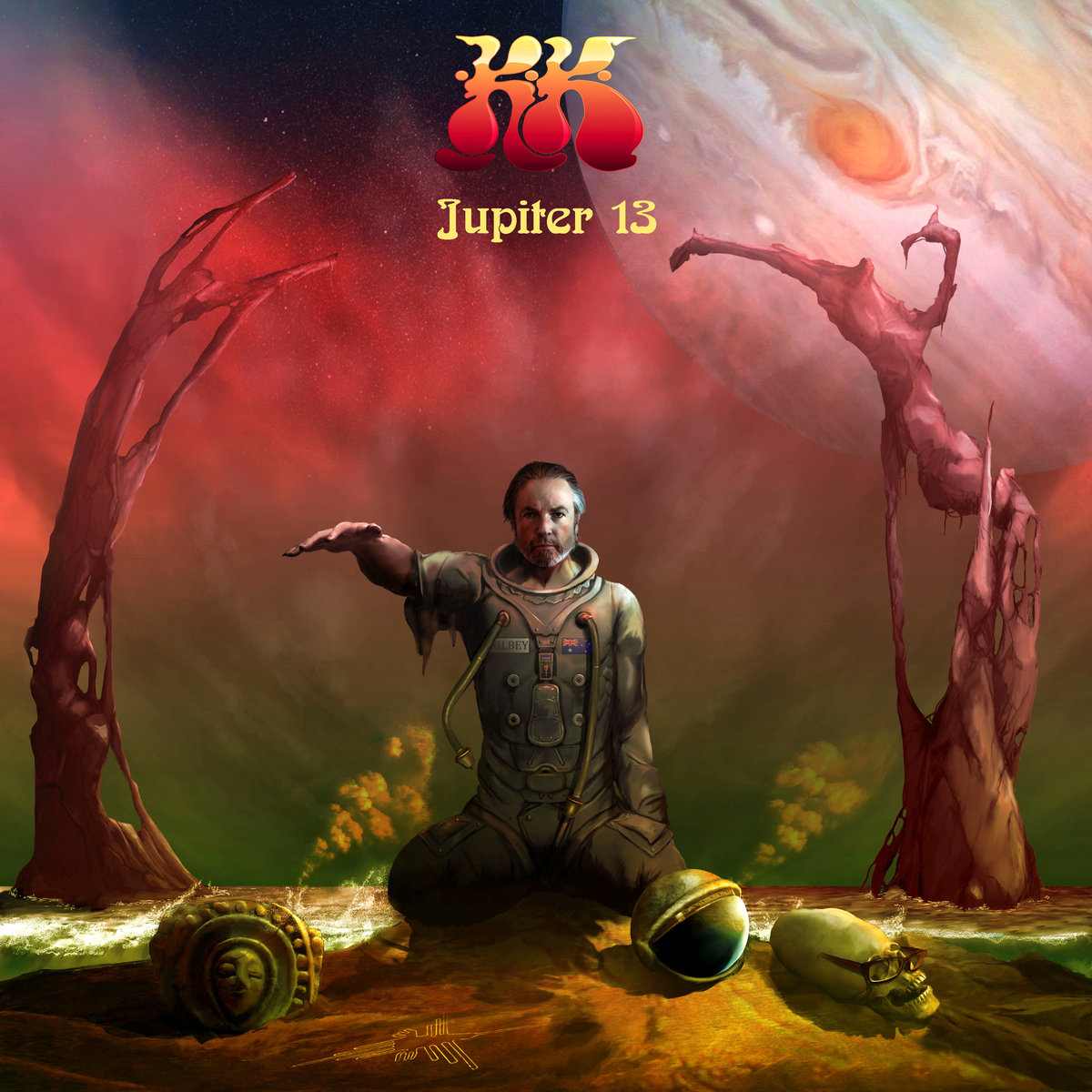 All India Radio's Martin Kennedy and The Church's Steve Kilbey are making beautiful magic again, this time on their sixth full length in just slightly over a decade. Kennedy works solo, weaving his audial spells before Kilbey hears any of the tracks. The fact that maestro Kilbey then extemporizes his lyrical magic in a matter of mere days makes their mixology more astounding. Their current incantation is given away by the cover, showing space oddity Kilbey untethered from his life-sustaining suit, landed on a barren planet with helmet cast aside. Kennedy's musical inspirations look to space, grounded by Kilbey's uniquely soulful and world-weary vocals. Voyaging through Kilbey's lyrical landscape provides openings to new dimensions, navigating through the shadows of 2020, giving even greater poignancy to Kennedy's musical spellcraft.
All India Radio's Martin Kennedy and The Church's Steve Kilbey are making beautiful magic again, this time on their sixth full length in just slightly over a decade. Kennedy works solo, weaving his audial spells before Kilbey hears any of the tracks. The fact that maestro Kilbey then extemporizes his lyrical magic in a matter of mere days makes their mixology more astounding. Their current incantation is given away by the cover, showing space oddity Kilbey untethered from his life-sustaining suit, landed on a barren planet with helmet cast aside. Kennedy's musical inspirations look to space, grounded by Kilbey's uniquely soulful and world-weary vocals. Voyaging through Kilbey's lyrical landscape provides openings to new dimensions, navigating through the shadows of 2020, giving even greater poignancy to Kennedy's musical spellcraft.
The album sets an ethereal tone with two men in disjointed conversation interrupted by the sound of sonar signals before dissolving into the sounds of NASA ground control which melts into the gentle but resigning "ADSR." Short for "attack sustain release decay," listen carefully to a world-weary life story bound together by music: "our life is a piece of music / you don't know how to conduct yourself anymore" ... "attack decay sustain release / the tempo is dragging, for god's sake play another piece." Carefully placed synthetic effects and sampled vocals are woven throughout the album, lending an air of otherworldliness enhanced by atmospheric layers of guitar and Kilbey's fluid bass.
Yet, for all the album's etherealness, the melodies remain solidly memorable. Like Dylan, Kilbey can craft stories that feel hauntingly autobiographical regardless of the reality. A recognizable feeling of resignation and regret flow throughout "Rendezvous," vocalizing like a rejected lover opining that "you always said / the best was yet to come / you made it seem / like anything was possible." Kennedy's tunesmithing is some of the most satisfying of all the Kilbey Kennedy creations, making full use of rich choral backdrops, sophisticated piano interludes, and balancing acoustic and electric guitar, never losing sight of the power of a tuneful chorus. The utterly catchy but haunting refrain of "Holiday" drips with nostalgia, a mournful earworm that echoes "sometimes I think of those beautiful days / beautiful nights I spent with you."
Closing track "Epilogue" questions "What were you searching for?" and a voice answers, "Searching? We were searching for the truth!" Music has served as an escape pod for the past year, and Kilbey echoes this sentiment in Jupiter 13's liner notes: "Martin prepares an escape pod which will double as his recording studio. He will float unconscious dreaming up symphonies that will be recorded by the software encoded in his spine." The album reverberates with a need to escape against mindful awareness of not being ground by the machine. This album provides a truly magical escape to both inner and outer space.
Samples can be found here.
Read More
- Anthony D'Amico
- Albums and Singles
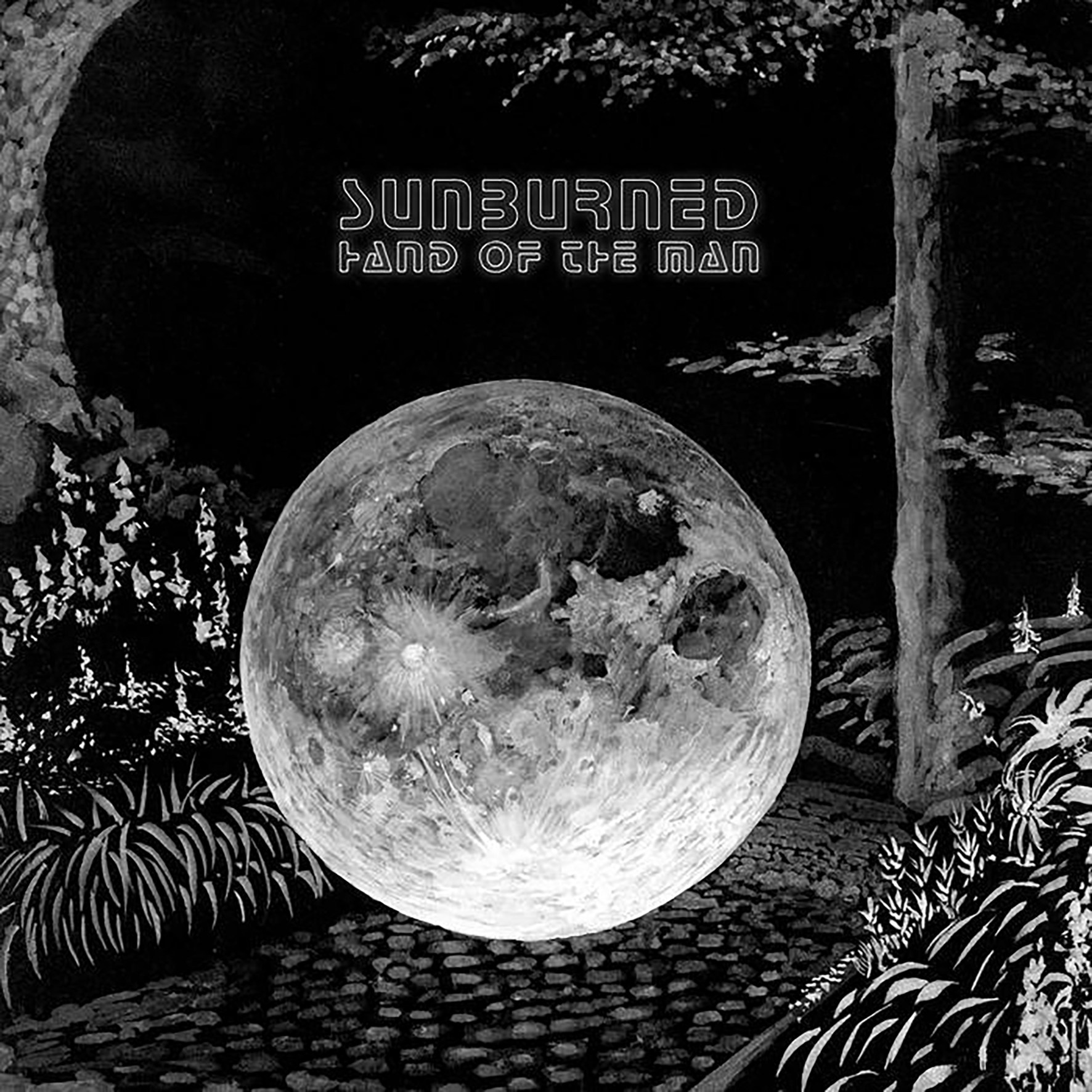 I never delved too deeply into the New Weird America scene during its heyday, so I have probably heard far fewer Sunburned Hand of the Man albums than most people who are constantly seeking out freaky underground sounds. Consequently, I have no idea if there is some CDR from like 2002 lurking among the free rock collective's previous 120+ releases that explores roughly the same stylistic terrain as Pick a Day to Die. I would be surprised if there was though, as this return (of sorts) feels unusually focused, tight, and muscular for the band. To my ears, that approach suits Sunburned Hand quite well, as the collective churn out some impressively killer psychedelia on this release (among other things). That said, they still remain every bit as unapologetically eclectic, perplexing, and occasionally self-sabotaging as ever, resembling a bunch of gleefully mischievous Western Massachusetts underground luminaries (with amazing record collections) spinning a wheel to determine whether they want to channel Captain Beefheart, classic krautrock, Dr. John, or some cool folk, prog, or psych obscurity with each fresh song. Despite that (or, more likely, because of it), this is an unusually fun, strong, and memorable release.
I never delved too deeply into the New Weird America scene during its heyday, so I have probably heard far fewer Sunburned Hand of the Man albums than most people who are constantly seeking out freaky underground sounds. Consequently, I have no idea if there is some CDR from like 2002 lurking among the free rock collective's previous 120+ releases that explores roughly the same stylistic terrain as Pick a Day to Die. I would be surprised if there was though, as this return (of sorts) feels unusually focused, tight, and muscular for the band. To my ears, that approach suits Sunburned Hand quite well, as the collective churn out some impressively killer psychedelia on this release (among other things). That said, they still remain every bit as unapologetically eclectic, perplexing, and occasionally self-sabotaging as ever, resembling a bunch of gleefully mischievous Western Massachusetts underground luminaries (with amazing record collections) spinning a wheel to determine whether they want to channel Captain Beefheart, classic krautrock, Dr. John, or some cool folk, prog, or psych obscurity with each fresh song. Despite that (or, more likely, because of it), this is an unusually fun, strong, and memorable release.
It feels weird and wrong to describe a Sunburned Hand song as a "single," but the propulsively groovy and synth-driven psych-rock vamp "Flex" surfaced in advance of the album and the band made a hypnotically bizarre video for it, so I guess it counts as one. Whether or not it is the best song here is debatable, but I doubt anyone would feel slighted if the entire album was merely the burbling, futuristic synth pulse and sinuous bass line of "Flex" extended for forty minutes. Naturally, there is absolutely nothing else like "Flex" amidst the other six songs, as they do not call it "free rock" for nothing. Also, some of the recordings that appear date back as far as 2007. In any case, nearly all facets of the chameleonic collective’s aesthetic yield compelling results. For example, the title piece sounds like Neu! reinventing themselves as a BDSM-themed rockabilly band, while "Initials" resembles a bunch of eclectic novelty records played at the wrong speeds over a killer space rock concert. The opening "Dropped A Rock," on the other hand, is a rippling and tender acoustic guitar piece that gradually smears into something resembling a hallucinatory interplanetary zoo. Elsewhere, "Prix Fixe" initially sounds like John Carpenter collaborating with early '80s Venom, then blossoms into a warmly beautiful psych-rock outro that I did not expect at all. Such is the singular genius of Sunburned Hand: I never know whether to expect a drunken barbeque, some intricate folk music, a channeling of classic Pink Floyd, a garage band trying to make a spy movie soundtrack, or some kind of arty contrarianism. All of that (and more!) can be readily found on Pick a Day to Die, but it all works beautifully because the playfully ridiculous, the indulgent, and the tenderly sublime are ultimately swirled together into such tightly edited, song-sized doses.
Samples can be found here.
Read More
- Anthony D'Amico
- Albums and Singles
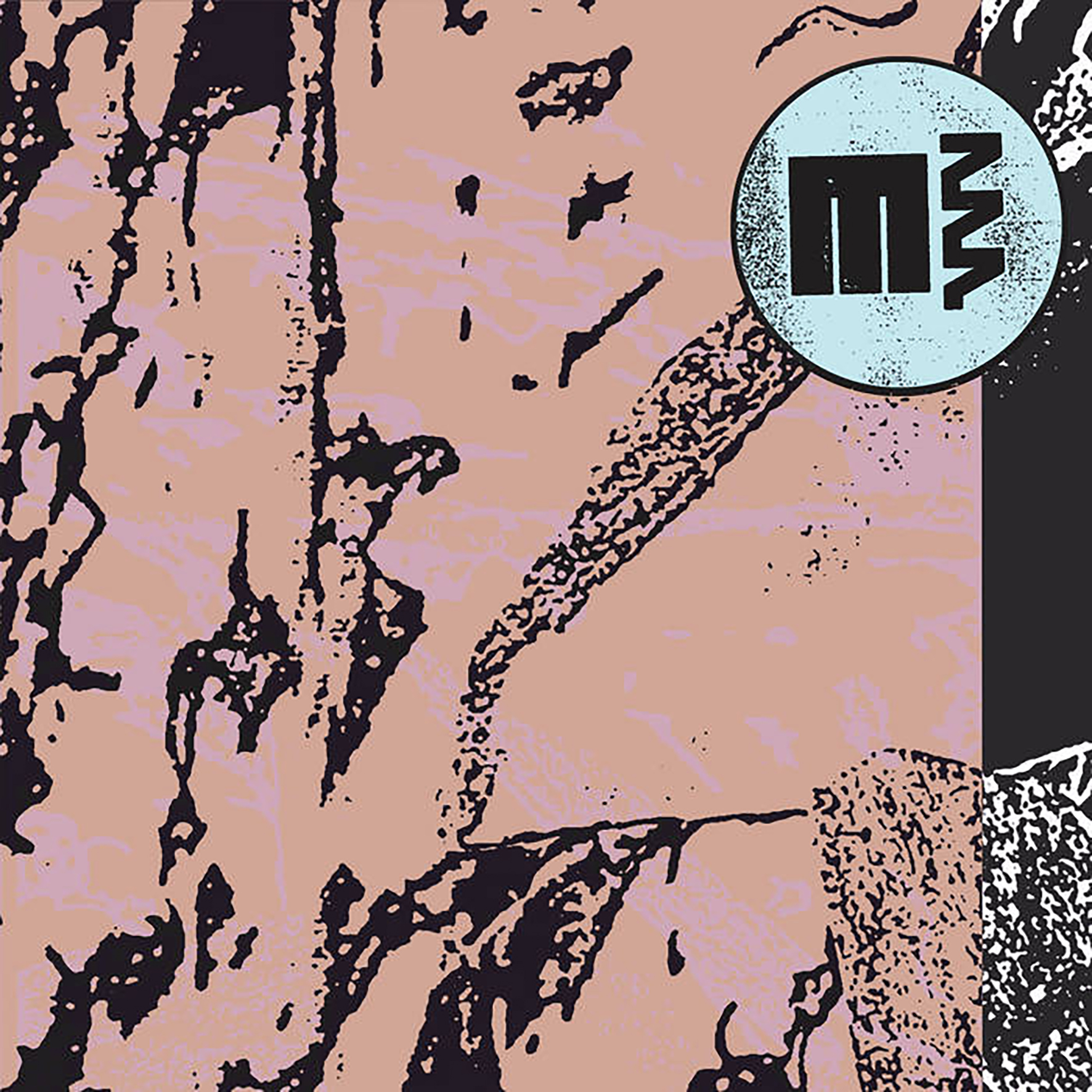 This auspicious debut brings together The Body's drummer (Lee Buford) with his counterpart from Braveyoung (Zac Jones). Apparently, the pair have been fitfully collaborating since the two bands joined forces for 2011's Nothing Passes, but they have not released anything until now. Unsurprisingly, World Vision Perfect Harmony is an impressively heavy and beat-driven affair, stylistically landing in a place that calls to mind a collision of some cool late '90s Justin Broadrick side project, the industrial-strength hip-hop of early Kareem, and the noise-ravaged techno of Container. Somehow the album is even better than that sounds, however, as Buford and Jones often display an impressively intuition for perfectly balancing bludgeoning force, eerily hallucinatory samples, a head-bobbing BPM, and an occasional well-paced hook or flurry of hyperkinetic percussion. In a few cases, Manslaughter 777's relentless rhythmic assault and constrained palette start to yield diminishing returns, but at least half the album is legitimately excellent and there are a few killer "singles" that will be finding their way into my playlists for years.
This auspicious debut brings together The Body's drummer (Lee Buford) with his counterpart from Braveyoung (Zac Jones). Apparently, the pair have been fitfully collaborating since the two bands joined forces for 2011's Nothing Passes, but they have not released anything until now. Unsurprisingly, World Vision Perfect Harmony is an impressively heavy and beat-driven affair, stylistically landing in a place that calls to mind a collision of some cool late '90s Justin Broadrick side project, the industrial-strength hip-hop of early Kareem, and the noise-ravaged techno of Container. Somehow the album is even better than that sounds, however, as Buford and Jones often display an impressively intuition for perfectly balancing bludgeoning force, eerily hallucinatory samples, a head-bobbing BPM, and an occasional well-paced hook or flurry of hyperkinetic percussion. In a few cases, Manslaughter 777's relentless rhythmic assault and constrained palette start to yield diminishing returns, but at least half the album is legitimately excellent and there are a few killer "singles" that will be finding their way into my playlists for years.
The opening "No Man Curse" provides quite a stellar introduction to the Manslaughter 777 vision, as a gibbering and clattering cacophony of samples gives way to a slow, heavy, and unexpectedly sensuous groove with the ghost of a pop hook hazily floating above the bass-heavy throb. Then, in the final minute, it explodes into a punishing and densely layered finale of electronic noise, ribcage rattling bass, and skittering fills. That visceral catharsis segues into the relentlessly propulsive "Jump and Spread," which simultaneously heightens and derails the more "pop" sensibilities of its predecessor. It kind of sounds like someone laid down a soulful vocal track for a rocksteady album, but the usual Kingston session musicians were busy and Revolting Cocks had to be frantically rushed in as a last-minute replacement. After a solid jungle-inspired detour ("ARC"), the album reaches its zenith with "I Can Not Tell You How I Feel," which sounds like a chopped, screwed, and autotuned R&B jam remixed for an industrial-themed strip club. The duo's love of melodic hooks goes into remission a bit for the album's more abstract and hallucinatory second half, but their weirder side offers some highlights too. I especially like the stammering, spectral, and deconstructed groove of "What Is Joke To You Is Dead To Me" and the thumping, burrowing psychedelia of "Mag Tech." The closer ("Do You Know Who Loves You") is a stunner as well, as a slow, hypnotic throb provides the foundation for a chopped, skittering, and dubwise percussion onslaught that ultimately gives way to a slamming hip-hop beat enveloped in warm, choral haze. I did not expect such a melodic and perversely angelic ending, but I probably should have, as inventive juxtapositions abound here. Manslaughter 777 are definitely onto something good, often resembling some classic WaxTrax! project blessed with strikingly varied, forward-thinking influences and access to modern recording software.
Samples can be found here.
Read More
- Administrator
- Albums and Singles
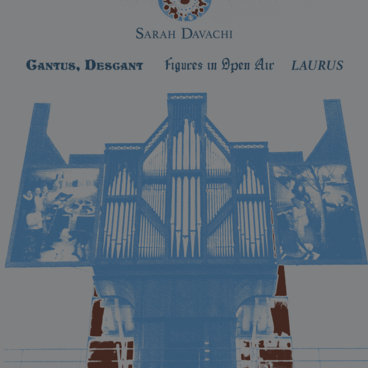
A boxed set compiling the series of inter-related releases that Late Music put out in 2020 - the double studio album Cantus, Descant, the two-disc live set Figures In Open Air, and Laurus, an extended EP of early sketches for the music fully realized on Cantus, Descant. Five discs in individual card wallets with 16-page accompanying booklet that details the compositional and recordings aspects of each release, housed in a rigid slipcase.
More information can be found here.
Read More
- Eve McGivern
- Albums and Singles
 When I first discovered music that expanded commercial radio's boundaries, much of it was found via word of mouth from like-minded people. Music discovery is more accessible these days, but word of mouth is still a powerful discovery tool. I likely wouldn't have learned about this one were it not for a like-minded Facebook group. Swansea musician Edward Hancock's project, The Brain Thunk When It Thailed is the culmination of a host of genres stirred together in a large DIY pot. Honed with a lo-fi aesthetic and honoring experimentation from generations, the album calls up homages to punk, doom, jazz, garage, blues, R&B, and psychedelia. With heavy use of panning and mixing on a simple Portastudio, the album succeeds in sounding like a spaced-out sixties band. That's where the fun begins.
When I first discovered music that expanded commercial radio's boundaries, much of it was found via word of mouth from like-minded people. Music discovery is more accessible these days, but word of mouth is still a powerful discovery tool. I likely wouldn't have learned about this one were it not for a like-minded Facebook group. Swansea musician Edward Hancock's project, The Brain Thunk When It Thailed is the culmination of a host of genres stirred together in a large DIY pot. Honed with a lo-fi aesthetic and honoring experimentation from generations, the album calls up homages to punk, doom, jazz, garage, blues, R&B, and psychedelia. With heavy use of panning and mixing on a simple Portastudio, the album succeeds in sounding like a spaced-out sixties band. That's where the fun begins.
The title, a play on a ship sinking after it has sailed, is accurate on multiple fronts. Reggae-sampled into track "Introlude" descends into fuzzed-out distortion and child-like tinkering, segueing into "Birthing Pool." Shifting and swaying, the album provides a mental workout, at times within a single track. Raw and spacey noise a la Chrome can be heard on "Hopeful Child," while shades of Syd Barrett and Ty Segall co-exist beautifully in "Your Nature." Closing track "The Brain Thunk When It Thailed" twists garage punk and R&B into something oddly compelling before breaking apart into madness.
The album offers little reprieve from the barrage, but this is not a bad thing. Intended to be a single loop, the final track boomerangs back on itself by incorporating the beginning track's musical elements. The album's concept album comes from the idea of the creative brain often functioning like the Titanic. The artist develops a vision and attempts to actualize it; the artist either succeeds or fails, much like a ship sinks or sails ("thails"). Ultimately, this ship is a success, and I look forward to exploring the navigator's next journey, as wild as it may be.
Samples can be found here.
Read More
- Anthony D'Amico
- Albums and Singles

Originally released back in 2018 on Maria W. Horn and Kali Malone's beloved and quietly influential XKatedral imprint, this gem from one of Sweden's key drone artists has now been remastered and given a vinyl reissue. On one level, 4-Track Guitar Music is exactly what the title implies, as these songs were all composed and performed with just a four-track recorder and an electric guitar. On a deeper level, however, Erlandsson brings the same degree of compositional rigor and conceptual ingenuity to these ostensibly minimal pieces that I have grown to expect from the scene centered around XKatedral, as he wields delay and transposed pitches to create an "ever-evolving cyclical polyphony." Most of the time, that ambitious vision results in an unusually good solo guitar album, but at least one or two pieces achieve something far more memorable and transcendent.
On its face, the opening "Achilles" is initially not significantly different from the work of several other EBow-wielding drone guitarists, as it starts off as a slow-motion reverie of warm, sustained tones. As it unfolds, however, quite a compelling transformation takes place, as the textures gradually become sharper, uglier, and feedback-ravaged. It is quite a neat trick, calling to mind a time-lapse video of a flower blossoming into a demon. Part of that sorcery is likely due to Erlandsson's aforementioned "ever-evolving cyclical polyphony" compositional technique, but he had another trick up his sleeve as well, as these pieces were "re-amplified in the machine hall of StaÃàllbergs Gruva, a disbanded Swedish iron mine." There was some digital modification along the way as well (Erlandsson is not an actual wizard, sadly), but the grainy and organic blackening of "Achilles" seems far more rooted in the mine's natural reverb than in any software. The following "Dali In Sapphire" is ironically somewhat more conventional, as Erlandsson plays relatively clean arpeggios over a crackling, rumbling, and sizzling wake of distortion, but "Famous Last Names" is another slow-motion stunner. For me, it calls to mind a dark sky illuminated by the intertwining, burning trails of a meteor shower. It is beautiful, but it also has a lot of bite, as the notes unpredictably snarl and flare up before they dissolve. The album then reaches its zenith with the epic "Phase Calendar," which vividly fleshes out the half-spectral/half-gnarled drones with ringing harmonics and some impressively visceral metallic textures. Again, it evokes trails of fire slowly streaking across the sky, but it also feels like the ground below has started heaving and cracking as well. Such a haunting display of elemental power is a tough act to follow, but the churning metallic swells and crackling rain sounds of "A Holographic Sky" are a satisfying finale nonetheless. This reissue also includes a bonus track ("Cellar"), but the original album's trio of smoldering, slow-burning delights should be enticement enough on their own.
Samples can be found here.
Read More
- Anthony D'Amico
- Albums and Singles
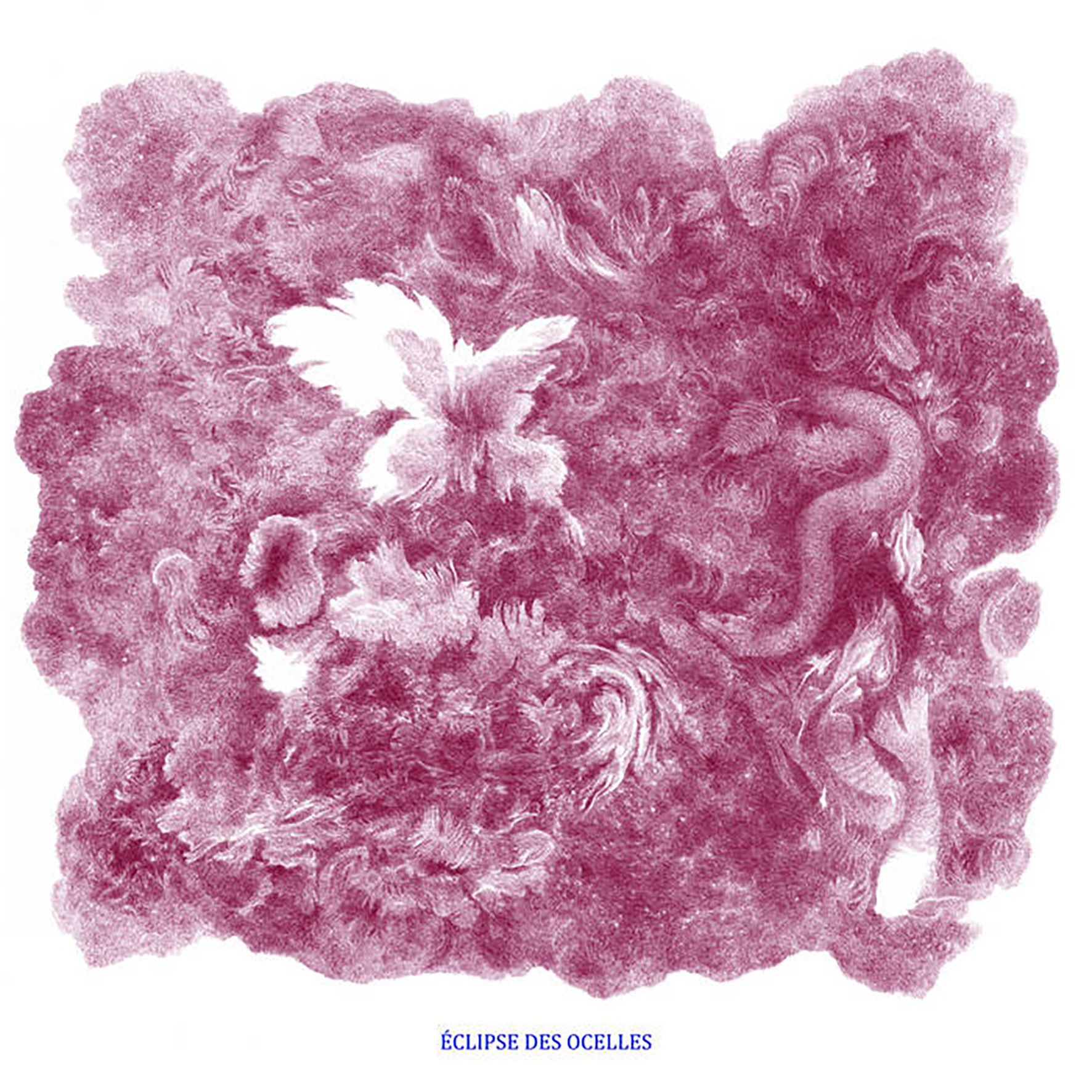
There seems to be a hell of a lot of weird and wonderful music coming out of Brussels these days and this debut from violinist/visual artist Roxane Métayer is a welcome addition to that teetering heap of outre delights. Éclipse des ocelles falls within one of my favorite niches, as Métayer uses field recordings and acoustic instruments to evoke a hallucinatory strain of imaginary folk music that feels both ancient and otherworldly. While I suspect Natural Snow Buildings will always reign within that particular shadow realm, Métayer does quite a fine job in staking out her own lovely niche of flickering and timeless rustic ambiance. Moreover, she achieves quite an appealing illusion of organic looseness and spontaneity through a mixture of improvisation and composed themes. Admittedly, I occasionally wish some pieces were a bit more focused and purposeful than they are, but Métayer is exceptionally gifted at casting (and sustaining) a sublime and dreamlike spell. And the album's handful of highlights make for quite a mesmerizing deep listening experience.
The chorus of chirping birds that open the album nicely sets the tone for what is to come, as Éclipse des ocelles has the feel of an ancient pagan ritual occurring in some sacred forest clearing. Or perhaps the mood is more akin to the soundtrack for a somewhat haunting and hallucinatory medieval puppet show. In either case, Métayer seems like she was born to be the highlight of some Folklore Tapes compilation, as she is impressively talented at conjuring the atmosphere of a darkly psychedelic folk tale. For me, that immersive otherworldliness is the primary appeal of this album and the deeper Métayer goes, the better the album gets. In that regard, the organically heaving, multi-layered, and multitextured "Dans un pays de serpents" is the most striking and memorable trip down the rabbit hole. It is not a fluke though, as "Plus brume, que lune" and "Quand l'abeille survient" are similarly absorbing and phantasmagoric. That said, vividly realizing eerily fantastical scenes is not the only realm where Métayer excels, as one of the album's other highlights ("Phaleine Somnolente") is a sublime convergence of production/recording skill, the sounds of an inventively misused violin, and some beautifully soulful, intertwining melodies. In fact, I think Métayer's recording and productive expertise is what elevates this album into something truly memorable and special, as she seems to have captured every single scrape, whine, click, and shudder of her violin with crystalline clarity. It was probably inevitable that I would like this album, as I would happily snap up anything that could be glibly described as "Richard Skelton and Lisa Gerrard took a bunch of mushrooms and made alternate soundtrack to Midsommar with Enhet För Fri Musik," but the sharp details and tactile textures here are on a level far beyond most good albums in the free-/freak-/psych-folk milieu.
Samples can be found here.
Read More